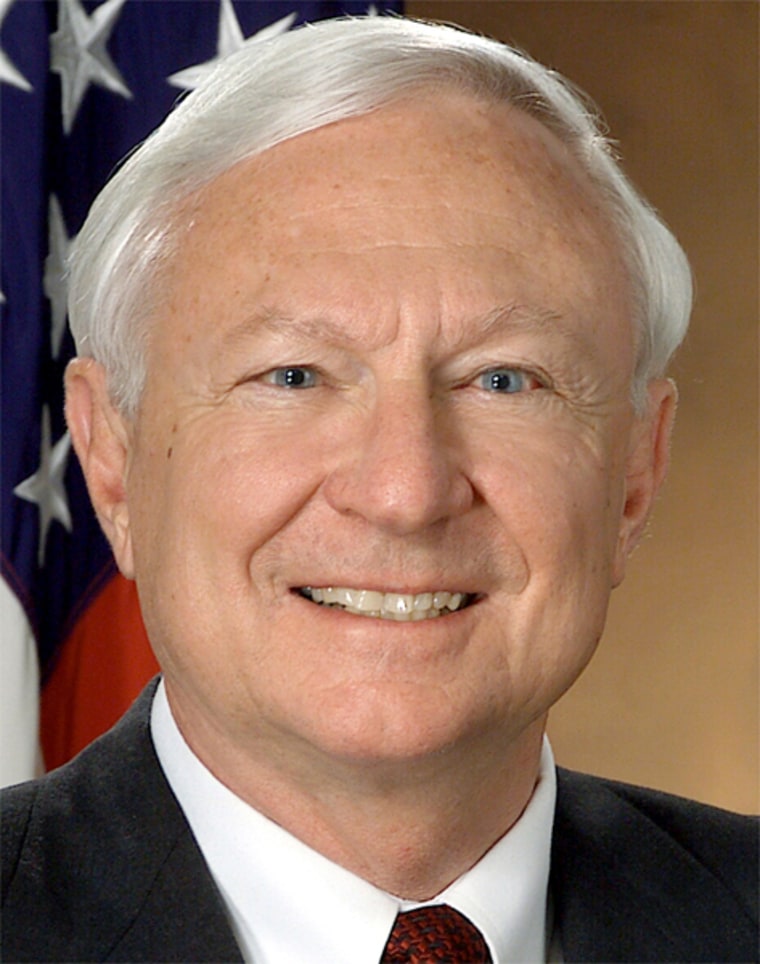The man chosen to lead the way to the moon and Mars is a one-time astronaut trainee and former Defense Department hotshot who is almost giddy about outer-space travel.
"It's going to be fun," Pete Aldridge said in an interview. "My goodness, the president says this is what we're going to do."
President Bush appointed Aldridge, 65, to head a commission charged with figuring out how to carry out the president's vision and bring in industry and other countries as partners.
In 1986, Edward Cleveland "Pete" Aldridge was training to fly on a space shuttle as a payload specialist, or non-career astronaut, right before the Challenger explosion. His flight was scrapped after Challenger erupted in a fireball during liftoff.
A few months later, Aldridge was appointed secretary of the Air Force under President Reagan.
Retired from Pentagon last spring
Born in Houston, home of most astronauts, Aldridge has degrees in aeronautical engineering and currently serves on Lockheed Martin Corp.'s board of directors. He retired from the Defense Department last spring after working 18 years at the Pentagon.
At the time, he was serving under Defense Secretary Donald Rumsfeld as undersecretary of defense for acquisition, technology and logistics. He says he was looking forward to "a more relaxed period of my career," and like many government retirees he was enjoying the Florida sunshine early last week.
He got the call from Bush just two days before the president announced his new moon-Mars plan and rushed to Washington to be there for the speech.
Aldridge didn't immediately know who would be on his commission or when the first meeting might be. He said the president will appoint the other members, probably no more than 15, all experts from both the private and public sector.
Will stick to Bush's program
The commission will offer advice on Bush's plan but will not pitch alternative ideas, Aldridge said — like skipping the moon and heading straight to Mars.
"The purpose of going to the moon is a step to go to Mars," he said, and the commission won't challenge that concept. "We're not going in and saying, 'Well, Mr. President, we believe you're wrong.'"
Bush asked Aldridge to report back to him within four months of the commission's first meeting.
Bush wants astronauts on the moon by 2020, possibly as early as 2015, but the president has no time frame for a Mars landing by humans. NASA Administrator Sean O'Keefe said that would depend on how quickly a new crew exploration vehicle can be developed and how everything else falls into place.
"We'll get there (Mars) when it's time, like a good wine. Not before it's time," Aldridge said with a smile.
As for what all this will cost, Aldridge repeated the president's position that the program is affordable roughly within NASA's budget, with a slight increase. He said he does not worry that the venture may be launched with too little money.
"Trying to do something cheaply is a first indication of failure," he said. "It can't be done that way."
